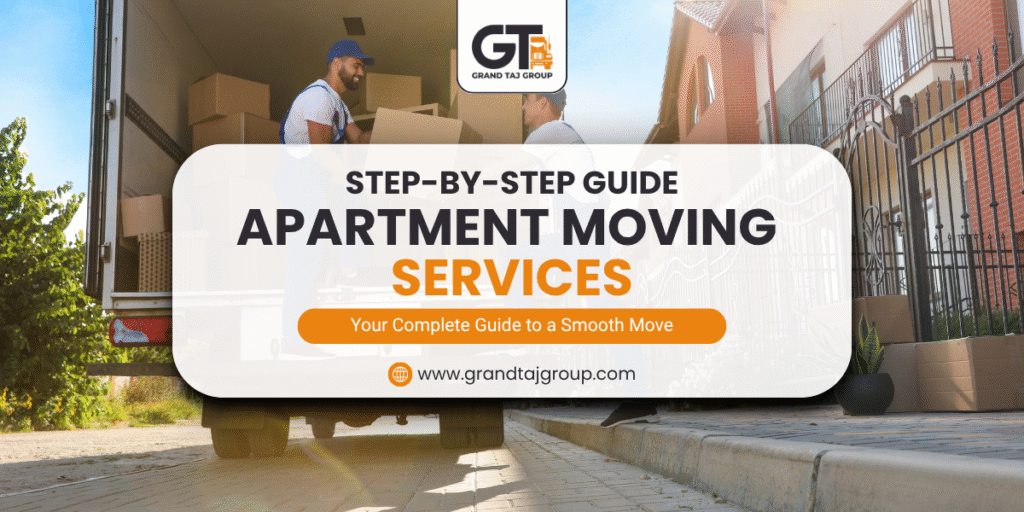You’re packing up your life into boxes, juggling work, kids, and the stress of starting fresh, and then comes the sticker shock.
Whether you’re moving across town in Stamford or relocating from New Haven to Hartford, the costs can add up fast: truck rentals, packing supplies, moving crews, and unexpected fees you never saw coming.
If you’re thinking, “There has to be a smarter way to do this,” you’re right.
Here are 10 proven tips to help you save money on your next move in Connecticut, without cutting corners or losing your sanity.
Tips to Save Money on Your Next Move
Let’s have a look at some amazing tips to save money on your next move.
-
Eliminate extra belongings
People often gather a lot of things over time without realising it. If you’re planning a move, now is an excellent time to sort through your stuff, get rid of everything you don’t need, and declutter. Gather all of your possessions by searching through your cabinets and closets. Divide your belongings into three piles: keep, donate, and discard.
Selling the stuff you want to donate is one option to get extra money. Methods such as holding a yard sale or garage sale, selling through print or online classified advertisements (such as Craigslist), or selling to relatives and friends are all viable options. Get a receipt if you’re donating anything; it might be deductible!
-
Take measurements before you move
Never pay to have heavy or bulky furniture transported unless you are quite positive it will fit in your new place. You can achieve this by taking precise measurements of the furniture to ensure it will fit into the rooms of your future residence.
You don’t want to spend money on moving expenses for stuff that doesn’t need to go with you. Donating or selling your old furniture is an option if it doesn’t work.
-
Pack smart with what you have
Towels, sheets, blankets, clothing, and shopping bags can be used as substitutes for expensive bubble wrap and packing materials for moving delicate things.
You can use fabrics you already have to pack things, which will save you money on boxes that you would have needed to move the towels and blankets separately.
-
Think before you buy
Moving is an exciting time, but it’s easy to overspend on new furniture and home goods, especially if you wait until the last minute to do your shopping. You may be spending more money than necessary.
Stay focused and only purchase what you truly require. Think twice before swiping your credit card; you’ll thank yourself later.
-
Look into portable storage units
Instead of hiring movers and renting moving trucks, you may just hire a portable storage container. You can pack up your belongings at your leisure and have them shipped to your new address by contacting some portable storage providers who will deliver containers to your home.
Many of these businesses will even transport the moving container to your new home, saving you the expense of renting a vehicle. When there is a significant amount of time between your moving date and the actual moving day, this can be useful. You can also use media mail to send books and other personal items to your new home.
-
Plan ahead before the move
Last-minute scrambling often results in additional costs. Plan ahead of time by confirming your moving date, scheduling services in advance, and beginning to pack non-essential items at least a week before the actual move. Avoid hiring movers for extra hours and rush fees by getting everything ready early.
-
Map out furniture placement
Make sure you have a plan for each piece of furniture’s new home before moving day. By doing so, you won’t have to waste time and energy trying to rearrange heavy things once the movers have gone.
-
Look for free moving boxes
You won’t find cardboard boxes for cheap. Collecting free boxes from individuals and businesses who are looking to dispose of cardboard boxes is a great way to save on moving expenses instead of buying expensive boxes. You might be able to find some empty paper boxes at your workplace that would be perfect for your move.
Stores in your area are another good bet, especially when you need to pack fragile items like glasses; they typically offer boxes with cardboard separators that make the process much easier.
-
Share a moving truck with someone nearby
When you hire a full truck for a partially loaded load, the moving expenses can add up fast. Sharing a moving vehicle with another mover heading in the same direction can help keep costs down.
This is referred to as a consolidated move or shared-load relocation. You can save money on the truck and petrol by splitting the space and the expense with another home. This is a service that certain moving firms in Connecticut provide, particularly for long-distance or intercity moves.
-
Remove wall hangings and decor early
One of the most overlooked moving prep steps is taking down wall art, photo frames, mirrors, and other decorations in advance. These items may seem small, but they can slow you down significantly if left for the last day.
By removing them early, you get several key benefits:
- You avoid a last-minute rush and reduce the risk of breakage.
- You have time to patch nail holes, touch up paint, or clean marks on the wall, especially important if you’re renting and want to secure your full deposit.
- You can clean and properly wrap fragile or sentimental items, instead of stuffing them in boxes last minute.
Conclusion
If you follow the above tips, your relocation will go more smoothly and you will save a lot of money. If you are willing to put in the time and effort, you can save money on your relocation without sacrificing quality.
To keep costs down and the procedure stress-free, it’s important to have a strategy, whether you’re doing the move yourself or hiring pros. Call us if you’re in need of local, residential, and commercial moving services in the state of Connecticut. From packing to storage to full-service home and business moves, we do it all.
Frequently Asked Questions (FAQs)
Q1: How to save on long-distance moving?
Ans. Obviously, the less stuff you have to move, the less money you’ll spend on a long-distance move. Donate or sell everything you no longer need in an effort to clean your life and take only what you really must.
In addition to helping you save money, packing your own belongings might inspire you to bring less overall. Get the most out of the space you have, whether you’re hiring movers or renting a container.
Q2: What is the cheapest time to move in Connecticut?
Ans. The most cost-effective time to move in Connecticut is during the off-season, typically between October and April. Moving companies are less busy, which often means lower rates and more availability.
Midweek days like Tuesday, Wednesday, and Thursday are also cheaper than weekends or the end of the month, when demand tends to spike. Planning your move during these quieter periods can lead to significant savings on truck rentals and labor costs.
Q3: Are there any free packing materials I can use?
Ans. Yes! You can save a lot by sourcing free packing supplies. Start by asking local grocery stores, liquor shops, bookstores, or big-box retailers if they have spare boxes. Most are happy to give them away.
Use items you already have, like towels, bedsheets, T-shirts, and newspapers, to wrap fragile items instead of buying bubble wrap or packing paper. Community platforms like Facebook Marketplace, Craigslist, or Nextdoor often list free boxes and supplies from recent movers.
Q4: Is hiring professional movers in Connecticut worth it?
Ans. Hiring professional movers can save you time, stress, and physical effort, especially for large or complex moves. However, if you’re on a tight budget, consider more affordable options such as:
- Hiring movers for only loading/unloading help
- Renting a truck and doing the driving yourself
- Getting help from friends and family
If you do hire movers, get quotes from at least 3 local companies in Connecticut, and check for any hidden charges. Many movers offer hourly rates or flat-rate packages—choose what suits your budget best.
Q5: Can I really save money by decluttering before a move?
Ans. Absolutely. Decluttering reduces the number of items you need to pack and transport. This can lead to:
- Lower moving costs (smaller truck, less labor)
- Fewer packing materials
- Extra cash if you sell unused items
By sorting through your belongings ahead of time, you also make unpacking at your new place faster and more organized. Donate, sell, or recycle anything you no longer need; don’t pay to move clutter you won’t use.
Q6: What are consolidated moves, and how do they save money?
Ans. A consolidated move involves sharing a moving truck with another household moving in the same direction. Instead of paying for an entire truck and fuel costs, you split the space and the expense.
This is especially useful for long-distance moves, where costs can get steep. Some moving companies in Connecticut offer this service. While your delivery may take slightly longer, the cost savings can be substantial. It’s also more eco-friendly, reducing fuel use and emissions.
Q7: Are there tax deductions for moving expenses in Connecticut?
Ans. Since the 2018 U.S. tax reform, moving expenses are no longer tax-deductible for most people. The only exception is for active-duty military personnel who are relocating under military orders. If you fall into this category, you may be able to deduct expenses like transportation, lodging, and packing materials.
For everyone else, unfortunately, moving costs are now considered personal expenses and aren’t deductible. Always check with a licensed tax advisor or accountant to understand current IRS rules.




